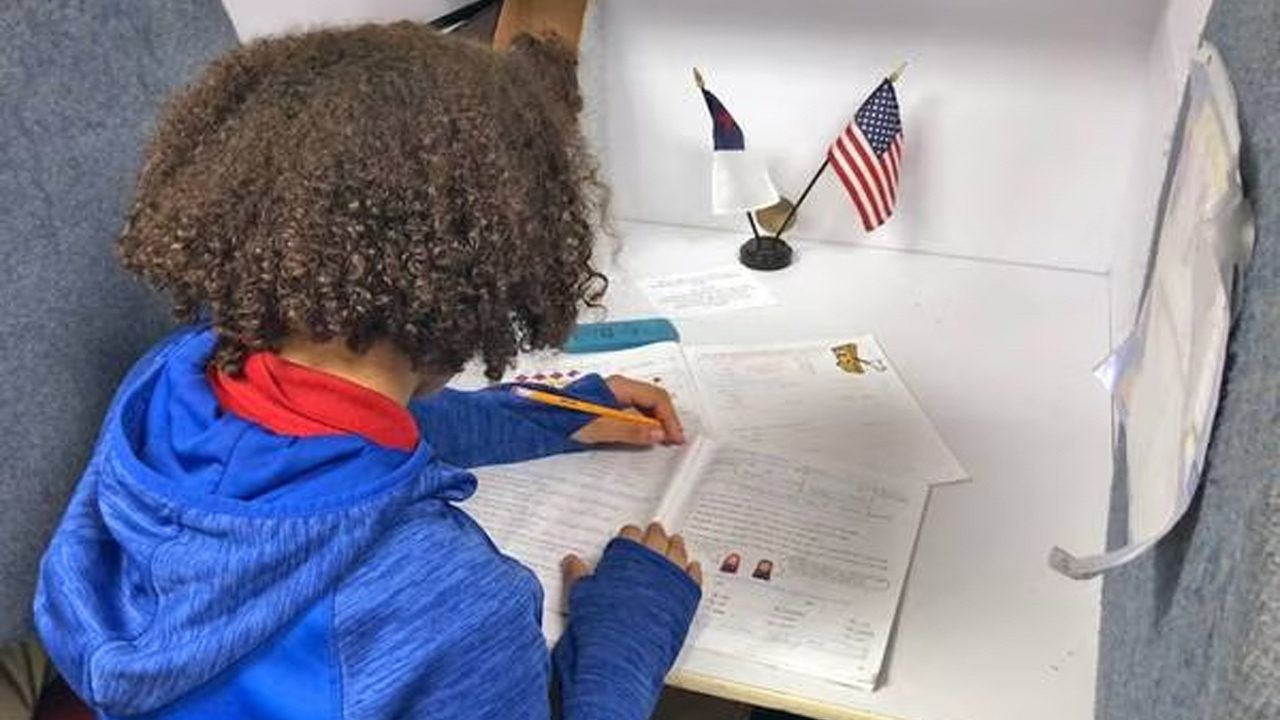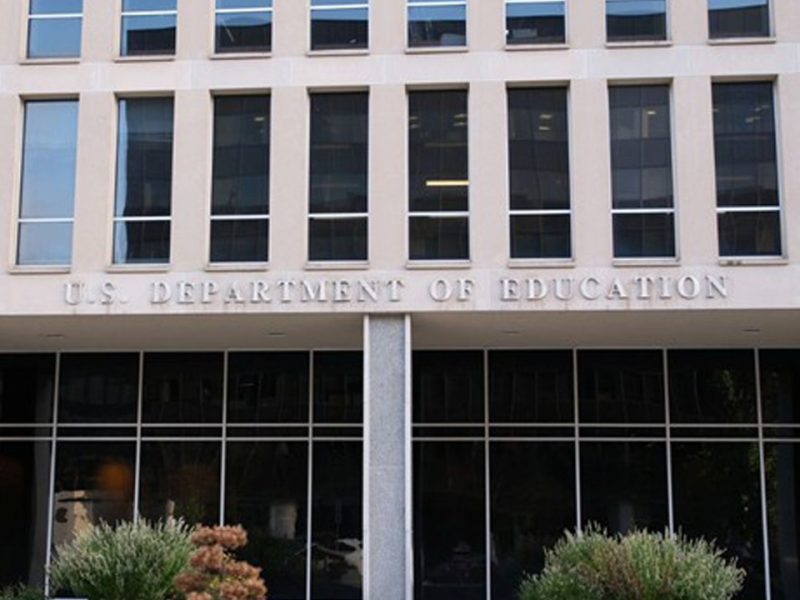
Florida education agency delays then seeks $10,414 for crucial school voucher records
Orlando Sentinel | By Leslie Postal and Annie Martin | April 13, 2023
One former teacher’s four-page complaint to the state urged an investigation into “the vast scope of educational neglect” taking place at the private Christian school in Osceola County. Another detailed concerns at a South Florida Jewish school. “Cleaning lady substituting for teacher,” it said.
In other complaints, parents wrote about upsetting incidents or worrisome deficiencies at their children’s private schools.
“Children of all ages are running out of classrooms screaming and hitting each other,” an Orange County mother wrote.
“They don’t provide lunch and they don’t even have a place to eat,” a Fort Lauderdale parent wrote.
“I don’t see any evidence of academics,” wrote a Panhandle parent.
These concerns were detailed in written complaints filed with the Florida Department of Education from 2015 to 2020 against private schools that take Florida school vouchers, the state scholarships that help families pay their children’s tuition bills.
In the past 18 months, at least 238 new complaints have been filed, according to the department. The Orlando Sentinel requested copies of those documents, and any related information gathered from the schools, on Jan. 24.
The request was similar to the public records requests it has made for complaints against private schools several times since 2017.
The education department said in a Feb. 15 email that it could provide copies of the complaint files for an estimated charge of $10,414.70 — an amount the newspaper considers exorbitant, out-of-line with what was charged in past years and an effort to block access to public records on a topic of public interest.
“The government isn’t supposed to be turning public records into a profit center for their agencies, and that seems to be what has developed in the last few years,” said Julie Anderson, editor-in-chief of the Orlando Sentinel and the Sun Sentinel in South Florida. “Either that, or they don’t want to fulfill the request.”
Journalists across the state are receiving excessive cost estimates in response to public records requests, saidMichael Barfield, director of public access initiatives for the Florida Center Government Accountability, a Sarasota-based government watchdog group. He said he’s seen “a huge explosion and increase in fees” assessed by state agencies during the past 18 months to two years.
“I’ve been doing this for 30-plus years,” Barfield said. “It’s accurate to say that in the digital era, where everything is computerized, accessing public records has become more expensive than it was during the era when everything was on a typewriter and in filing cabinets.”
He added, “I’ve never seen fees like what we’re seeing now.”
$2 billion and growing
School vouchers are a hot topic in Florida, and across the country, this year.The complaints filed against participating private schools, the Sentinel has found, provide a window into the workings of some of the private schools that take part in the state voucher programs but operate mostly outside of state control.
The state’s current voucher programs spend nearly $2 billion to send more than 252,000 students to about 2,000 private schools. Gov. Ron DeSantis last month signed legislation making those programs, now mostly targeted to youngsters from low-income families, “universal” so that all school-age students in the state are eligible for scholarships.
State leaders predict about 80,000 additional students will take these state vouchers next school year.
In the Sentinel’s 2017 “Schools Without Rules” investigation, complaints helped the paper to document private schools that had hired teachers whose only academic credential was a high school diploma, employed instructors with criminal records, falsified fire and health inspections for their buildings and taught questionable academic lessons.
For the latest records request, the education department did not say how many pages of documents were in the 238 complaint files the Sentinel wants, but it estimated it would take 400 hours, or the equivalent of 10 work weeks, and “extensive use of resources and extensive clerical and supervisory assistance by the Department’s personnel” to fulfillit.
In 2017, the Sentinel paid $49.77 for eight complaint files, which were provided six days after the request was filed. At that rate, it would expect to pay about $1,500 for the 238 files. This year, it took the department three weeks to provide a cost estimate that topped $10,000.
The complaints typically do not lead to any action against the school. By law, the state has no control over the operations of private schools, even if they rely completely on state scholarships for their revenue.
Unlike public schools, such private schools can hire teachers without college degrees, teach whatever curricula they choose and set up in facilities — from storefronts to church meeting rooms — that do not meet Florida’s school building codes.
A parent who complained about a Miami school in 2020, for example, said it was not “providing the proper education, nutritional lunch or physical education” the family expected. The department sent the parent its standard letter saying it did not regulate private schools, but the parent “may wish to transfer your student to any other scholarship participating school.”
Typically, private schools can keep secret much of their information, from staff credentials to student success on standardized tests. But when someone files a complaint, a public record is created. If the complaint alleges violations of scholarship rules, the state can investigate and ask the school to provide documents, including employee background checks or credentials.
A single complaint the education department shared with the Sentinel in March — as attorneys for the paper and the department negotiated the scope and cost of the public records request — showed, for example, that three teachers at Downey Christian School in east Orange did not have bachelor’s degrees in October 2021, when a complaint against the school was filed.
Those instructors taught middle school math and science, high school English and high school math, the records show. The school enrolls more than 300 students who use state scholarships, bringing in more than $1.4 million, according to data from Step Up For Students, which administers most of Florida’s scholarships.
Downey’s administrator did not respond to a request for comment.
Most of the complaints from 2017 to 2020, many of them handwritten, detail the concerns of parents with children enrolled in the schools and the teachers who work there. But sometimes they include emails and documents from government officials, such as child welfare investigators or fire marshals.
‘Severe fire code violations’
In 2016, for example, the Orange County fire marshal contacted the education department about “severe fire code violations” that are “life safety critical” at a Pine Hills school.
The department said Agape Christian Academy had submitted paperwork indicating it was in compliance with fire codes, a requirement to take vouchers, but the fire marshal told state officials his office did not produce the documents.
The department revoked the school from the voucher program in 2017 after the fire code violations and other problems came to light.
That same year, a child welfare investigator raised concerns about the criminal record of a teacher at another west Orange school. Under state law, the woman should not have been hired at a school that accepted state scholarships, and the school fired her at the state’s insistence.
In 2021, the newspaper reported on the former Winners Primary School in west Orange where a teacher had been arrested on accusations of soliciting sexually explicit videos from a student. The complaint file helped document high teacher turnover, shoddy employee vetting procedures and the hiring of at least 10 teachers without college degrees as well as concerns about student safety and poor-quality academics.
“Someone needs to visit the school and see what takes place there,” wrote a parent who filed a complaint in 2019.
The school, which has since changed its name to Providence Christian Preparatory School, remains in the state voucher program, with about 170 students using scholarships, bringing in more than $570,000. The former teacher pleaded no contest to the use of a child in a sexual performance, a second-degree felony, last year.
The Sentinel’s attorney, Rachel Fugate, said she is continuing to negotiate with the department. “I’m still hopeful we reach a resolution that provides the Sentinel access to these meaningful documents at a reasonable cost,” she added.
Inflating cost estimates blocks access to records, discourages members of the public from making requests and interferes with the democratic process, Barfield said.
“We call them ‘public’ records because they belong to the public,” he said.





